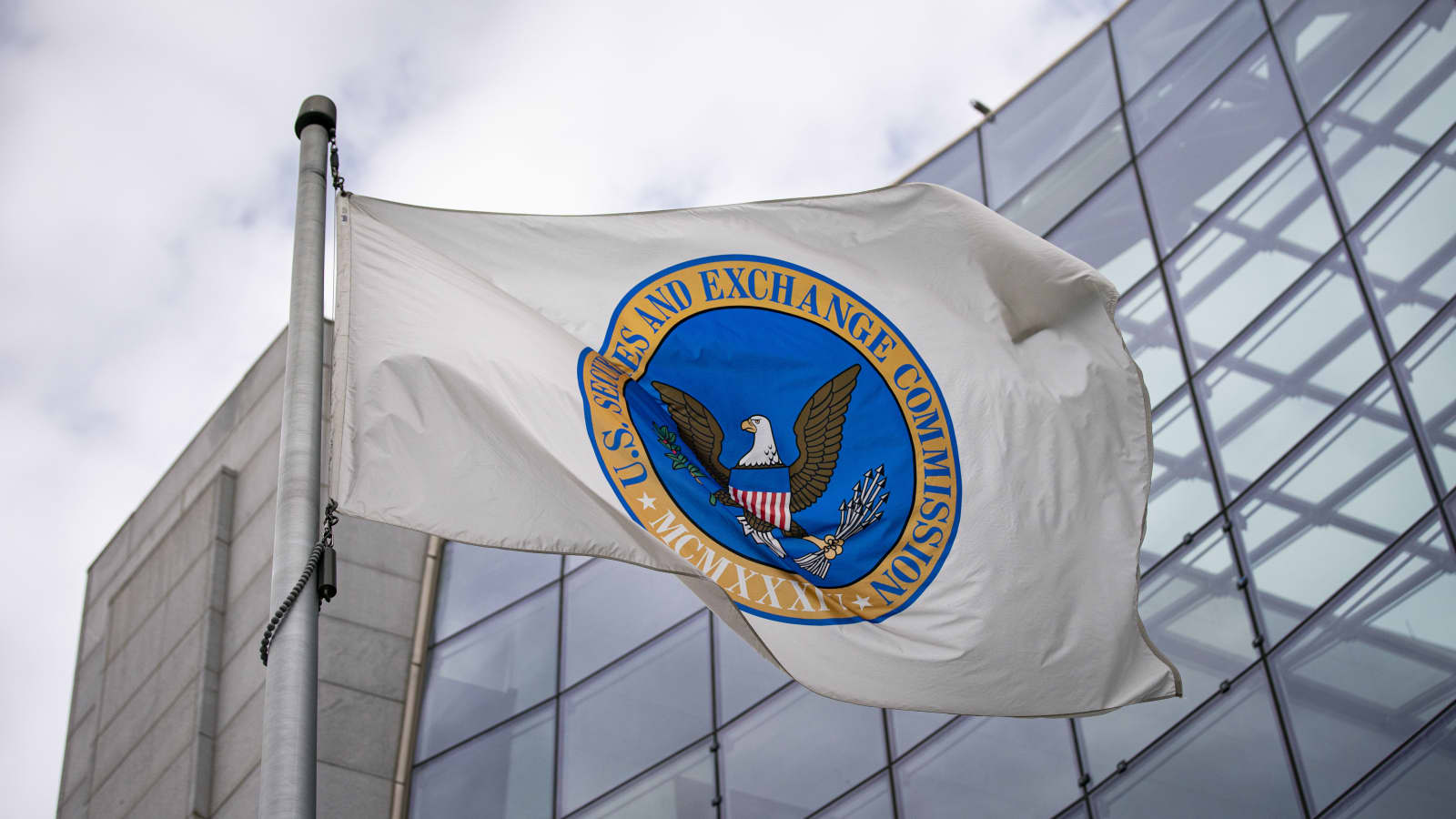SEC Reveals Agenda to Revamp Crypto Rules and Lighten Wall Street’s Regulatory Load
SEC Reveals Agenda to Revamp Crypto Rules and Lighten Wall Street’s Regulatory Load
By
Rachel Steinberg
Last updated:
September 18, 2025
First Published:
September 18, 2025

A flag outside the U.S. Securities and Exchange Commission headquarters in Washington, Feb. 23, 2022. | Al Drago | Bloomberg | Getty Images
The United States Securities and Exchange Commission has unveiled an ambitious agenda that seeks to reform how crypto is regulated while also adjusting certain rules for Wall Street. This dual focus demonstrates the regulator’s intent to modernize its approach in a way that acknowledges both the rapid rise of digital assets and the evolving needs of traditional markets.
A shift in priorities
The SEC’s new agenda signals that crypto regulation is no longer a side issue but a central pillar of its policymaking. With billions of dollars flowing into digital assets and growing retail participation, the regulator is under pressure to provide clearer guidelines. At the same time, it is exploring ways to ease burdens on Wall Street firms to maintain competitiveness.
Reimagining crypto oversight
For the crypto industry, the announcement means a potential move away from fragmented enforcement toward a more structured framework. Companies have long argued that they need defined rules rather than case by case lawsuits. The SEC’s agenda appears to recognize this by setting the stage for tailored standards that fit the realities of blockchain based markets.
Easing restrictions on Wall Street
Alongside its crypto focus, the SEC is also considering measures to reduce some of the regulatory load on traditional financial institutions. This includes reassessing older rules that may no longer serve today’s dynamic markets. By doing so, the commission aims to give Wall Street firms more flexibility while ensuring investor protections remain intact.
Balancing innovation and safety
The challenge ahead is balancing innovation with safety. Looser restrictions for Wall Street could raise concerns about risk, while stricter clarity in crypto could still stifle growth if mishandled. The SEC’s agenda seeks to strike a middle ground where both sectors can evolve under modernized oversight.
Industry reaction to the roadmap
Crypto leaders have cautiously welcomed the development, noting that it could finally bring the clarity the industry has been demanding. Wall Street firms, meanwhile, see the potential for regulatory relief as a chance to operate more efficiently. However, both groups are waiting to see whether the final policies match the early optimism.
A chance to repair strained relationships
The SEC has had a contentious relationship with the crypto industry in particular, with accusations of overreach and lack of guidance. By openly addressing reforms, the regulator has an opportunity to rebuild trust and establish a more collaborative relationship with businesses on both sides of the financial spectrum.
Potential for global influence
As one of the world’s most influential regulators, the SEC’s actions are likely to set a standard for other jurisdictions. A comprehensive crypto framework in the United States could encourage similar approaches abroad, leading to greater international alignment in digital asset regulation.
Concerns over execution
Not all observers are convinced. Critics worry that easing Wall Street restrictions could favor large institutions at the expense of investors. Others argue that crypto specific rules may still fall short of addressing the unique risks of decentralized finance. The success of the agenda will depend heavily on execution and enforcement.
Looking ahead to implementation
The unveiling of the agenda is only the first step. The real test will come when proposals are translated into detailed rules and applied to real market situations. If successful, the reforms could usher in a new era where both Wall Street and crypto industries operate under clearer, more effective oversight.
Popular articles
Subscribe to unlock premium content
Disney’s Timeless Magic and How the Entertainment Giant Continues to Shape Culture and Innovation

Imran Khan’s Economic Missteps Amid Political Chaos in Pakistan

The Philippines’ Digital Shift How Remittances and BPO Are Fueling Growth

Disney’s Timeless Magic and How the Entertainment Giant Continues to Shape Culture and Innovation

Imran Khan’s Economic Missteps Amid Political Chaos in Pakistan

Disney’s Timeless Magic and How the Entertainment Giant Continues to Shape Culture and Innovation









